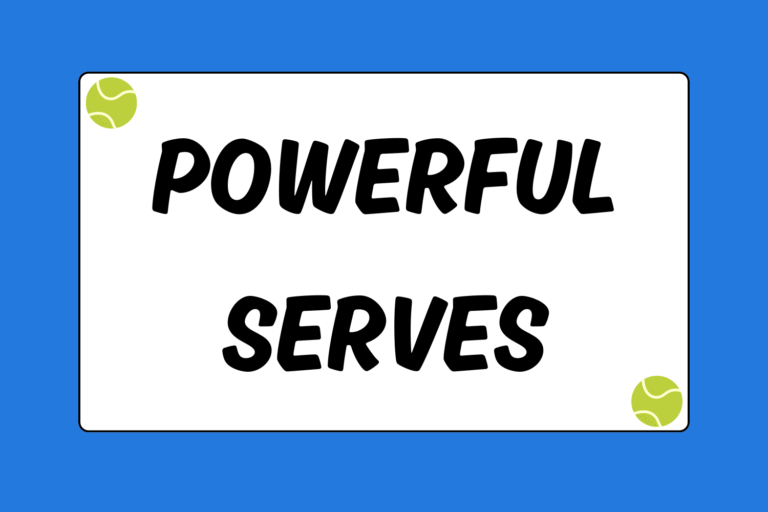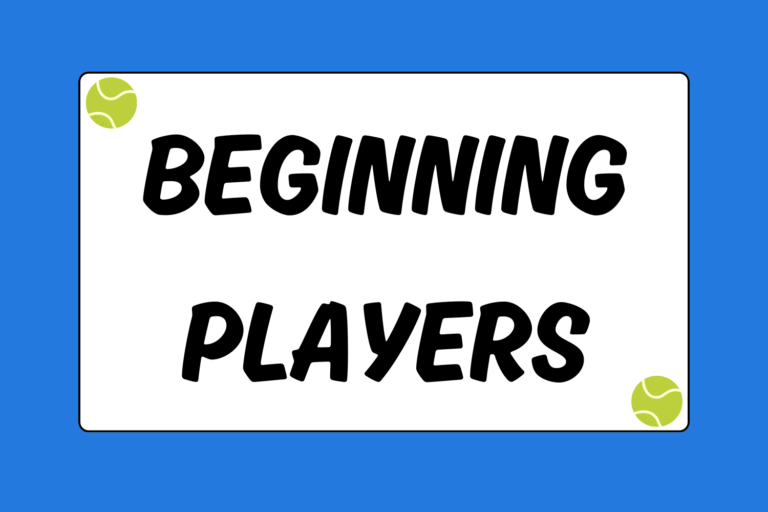Professional tennis players are resolute, and their ferocity translates directly over to their play. They take risks and crush shots even when they’re down big or in desperate need of a point. Their confidence rarely wavers, and they focus solely on the task at hand: Winning the point. But your mentality can also be your worst enemy. When you’re losing, the court can feel like its crumbling beneath you, engulfing your sense of self-belief as the ground seemingly disappears from under your feet. This tennis guide outlines ways to stay positive on the tennis court, no matter the score or outcome.
Turn the Tables
It’s hard to find solace when you shank a ball into the bleachers, but you have to use your failures as motivation. Rather than dwelling on your poor performance, try to pinpoint the areas of your game that need improvement. For example, instead of smashing your racquet into the concrete and claiming that your second serve is horrible, determine why your serve is breaking down. Run through your entire form — beginning with the ball toss — and figure out what’s causing the problem.
You can’t simply flip a switch and become a better player. And you can’t expect to play great if you’re not putting in hours of practice every week. Losing is a great reality check, so use your failures as motivation for success.
Point-by-point
Concentrating on the next shot and simply playing one point at a time are the easiest ways to stay optimistic during a match. Don’t dwell on the score, the previous point, or your overall play. Instead, focus solely on what you can control: The next shot. If you’re down 15-40, your opponent needs to win one point just as badly as you do. Don’t completely change your style of play or assume the game is over simply because you’re trailing.
If your opponent hits a winner, mentally applaud his shot. If you smack a forehand straight into the net, analyze what you did wrong and move on. Focus on making your first serves, hitting the ball deep, and keeping the ball crosscourt.
The Big Picture
Although the following advice won’t help you in the middle of a match, this tip is absolutely necessary if you want to thrive on the court: Make long-term goals. In fact, you can start right now, while you’re already using your computer! Put together a list of goals for the next month, six months, and year. Here are some examples:
- Play tennis 25 of the next 30 days.
- Sign up for 10 tournaments in the next six months.
- Improve your first serve percentage to 60 in the next year.
Establishing goals is the best way to stay motivated, and this sense of self-discipline can carry over to all aspects of your life (school, work, social life, etc.). With tangible goals in sight, you’ll stay driven and focused. Even if you don’t have the raw ability, you can outwork your peers and draw motivation from your setbacks. Grit is the hardest attribute to measure, but it ultimately separates winners from less-passionate players.
“Many of life’s failures are people who did not realize how close they were to success when they gave up.”
Thomas Edison
American scientist and inventor
Test Your Mettle
Tennis, for the most part, is an individual sport, and many players tense up under the spotlight. The pressure can overwhelm some players, and many beginners have to battle a shaky hand for the first few points. But practice can conquer all fear. If you put in the necessary time with a coach, polish your game, and take care of your body, you’ll head into your match with coolness and poise. Your opponent, on the other hand, will be the one with trembling knees during warm-ups.





